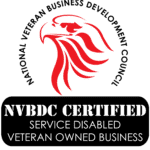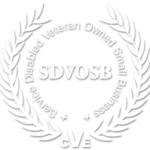A solicitation or Request for Proposal (RFP) is a document released by a buying agent or authority that outlines the technical details and specifications of their specific acquisition needs. For contractors, this is often the preferred procurement method for large construction projects where price may not be the most important item to consider. Responses to these solicitation documents are called technical proposals, which are typically prepared by a construction company or a technical expert and presented to a client as part of the bidding process for a construction project. The proposal provides an overview of the proposed construction work, including design, engineering, materials, equipment, and construction methods. More importantly, a Technical Proposal is meant to showcase to the reviewer the unique advantages, expertise, and value of selecting a prospective bidder should they be selected.
A Technical Proposal usually includes some form of the following information:
- Project Overview – the project’s scope and objectives, including the size and complexity of the construction work.
- Technical details – this section outline includes the design and engineering requirements, construction methods, and materials to be used.
- Project schedule – detailed project schedule, including the timeline for completing each phase of the construction work.
- Budget and cost estimates – the budget and cost estimates for the project, including the cost of materials, labor, and equipment.
- Qualifications and experience – information about the construction company’s qualifications and experience, including past performance on similar projects, certifications, and licenses.
- Risk management and safety plan – the risk management and safety plan for the project, including strategies for identifying and mitigating potential risks and ensuring worker safety.
Use these three strategies to make your next technical proposal stand out:
Carefully Review the Scope of Services(SOS) or Scope of Work (SOW) Bid Documents
These documents highlight the problem(s) that need to be solved, the timeline in which it needs to be solved, and other key elements that must be addressed as part of the process.
It is critical that your proposal team go over these important documents to understand exactly what is required for this project. Many technical proposals created by prospective bidders have been cast aside during the scoring or technical evaluation of the buyer simply because the details were missed while reviewing the SOS/SOW. A lot of time and effort goes into developing these SOS/SOW documents. If you mistakenly leave out or overlook a detail, it effectively tells the buyer that you haven’t taken this opportunity seriously enough. Why should they waste their time reviewing your proposal when you didn’t take time to read and comprehend what will be required of you should your company be awarded?
Be aware of the solicitation and award timelines. You may be required to hold key personnel for extended periods of time when commitment letters are required as part of your submission. Make sure to include handwritten signatures (not digital) when required.
It can be devastating to an organization if they win a project bid, only to discover project requirements they did not fully understand or missed in the bidding process.
Employ Empathetic Proposal Writing
Empathetic proposal writing is an approach that seeks to create a deep understanding of the needs, desires, and challenges of the audience that the proposal is targeting. It involves putting oneself in the shoes of the intended readers, identifying their pain points, and crafting a persuasive argument that resonates with their emotions and motivations. Empathetic proposal writing requires careful consideration of the language, tone, and structure used to communicate the proposal’s key points. By addressing the audience’s concerns and proposing solutions tailored to their specific needs, empathetic proposal writing can be a powerful tool for building trust, forging strong relationships, and ultimately winning business. When done effectively, empathetic proposal writing can help create a sense of partnership between the proposal writer and the reader, leading to more successful and mutually beneficial outcomes.
Created Tailored Capability Statements for Each Project
A generic capability statement will not help you win a bid.
Winning capability statements communicate a thorough understanding of the pain points outlined in the bid documentation and highlight your organization’s experience and qualifications to solve those problems.
ACE Consulting helps our clients with technical proposals and other pre-construction services. Contact us today to learn more.



